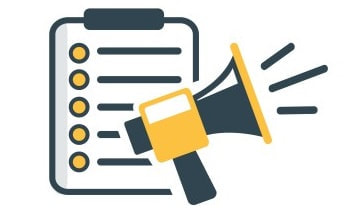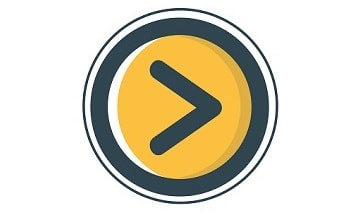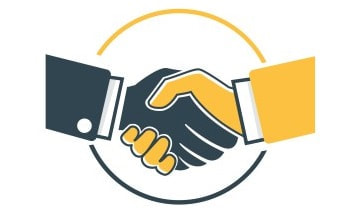How to Retire Early in New Zealand
Our definitive guide reveals proven ways to live on your terms, have a comfortable retirement and avoid the pitfalls and the risk of running out of money.
Updated 18 April 2023
The average New Zealander typically retires around age 65, at least that’s the age that most superannuation plans start paying out. However, many people would ideally prefer to retire earlier. To guide you through everything you need to consider, our guide covers:
FIRE-focused guides: Our guide to Financial Independence, Retire Early (FIRE) provide specialist insights - FIRE Explained and The Five Different Types of FIRE Plans are good starting points.
- 10 Proven Ways to Retire Early (and have enough money to last for a lifetime)
- How to Retire Early - Frequently Asked Questions
- How Everyday New Zealanders Reach Financial Freedom
- How to Retire Early - Our View
- Reverse Mortgages - What You Need to Know
FIRE-focused guides: Our guide to Financial Independence, Retire Early (FIRE) provide specialist insights - FIRE Explained and The Five Different Types of FIRE Plans are good starting points.
Know this first: How much money do you need to retire?
- Before we explain how you can retire early, it’s crucial to understand how much money you need to retire.
- On average, you need 25 times your annual expenditures to retire, but that’s if you retire at age 65.
- If you retire earlier, you’ll need to add as many years as you retire early. For example, if you retire at 50, you’d need 15 more years of annual expenditures, for a total of 40 times your annual spending if you keep living the same lifestyle.
- You probably think that’s a significant number and it is, but there are simple ways to have the money you need to retire early.
Important: Per our Retirement in a Nutshell guide, we believe that the BEST situation to be in at 64 is the following:
- Own your home (with no mortgage owing)
- Have no personal debts (credit cards, long-term finance etc.)
- Have at least $100,000 saved (it may sound impossible, but it will make a big difference to your retirement)
More information: Visit New Zealand's Financial Freedom Authority - The Happy Saver. Ruth is a proven expert and has helped hundreds of New Zealanders on their journey to financial independence. Ruth also offers a phone-a-friend service which we believe is a helpful starting point to mapping out the financial situation you want to achieve. MoneyHub has no financial relationship with The Happy Saver, and mention it given its popularity, relevance, usefulness and trust.
10 Proven Ways to Retire Early (and have enough money to last for a lifetime)
Retiring early requires a lot of planning, preparation, saving and careful ongoing management. Our list below of ten must-know tips, will guide you from employment to a sustainable retirement.
Make a plan for your retirement (it's never too early, and without one, you'll be lost)
What can I do right now to help me retire early?
|
Get out of debt (otherwise, you'll spend your savings paying off the balance and its interest)Any retiree will say the same thing - don’t retire with debt. If you do, it only makes it that much harder to afford a comfortable retirement. If you have consumer debt, pay it off as a priority.
Debt should be your focus as you approach retirement. Be proactive to pay it off aggressively - if you only make the minimum payments, you will be saddled with long-term debt. The more money you throw at paying off debt balances, the less money you can save for retirement. But doing so is a necessary evil to protect your finances in retirement. What can I do right now to help me retire early?
|
Pay off your mortgage as fast as possible (the sooner you do, the sooner you'll have options)
What can I do right now to help me retire early?
|
Take advantage of term depositsYou aren’t going to become a millionaire on term deposits, but they are a non-risky investment when you need to store cash and don't want to invest it in funds or shares. Term deposits protect your retirement savings so you can draw down the money you need progressively during your golden years.
What can I do right now to help me retire early?
|
Consider investing in managed fundsWarning: Your capital (original investment) is at risk if you invest in managed funds.
If you want to retire early, you may need to invest in something more aggressive right now to build up a nest egg. Your income itself won’t be enough, and the limited interest earnings made on term deposits won't provide much of a lifestyle unless you have millions of dollars in the bank. Managed funds offer the aggressiveness you need along with the flexibility to withdraw funds whenever you need. There are no penalties, and you can take more risk while reaping the rewards of the more aggressive investment. What can I do right now to help me retire early?
What about KiwiSaver? Should I put my money into managed funds (or another investment) instead?
|
Cut down your spending to save, conserve money and form good habits for the long-term
Drawing on the 'Financial Independence, Retire Early' (FIRE) movement, there are two retirement concepts which best explain the choice for retirees:
What can I do right now to help me retire early?
|
Live off your investment earnings by diversifying your assets (so you'll always have reliable cashflow)As you prepare to retire early, you need money for the daily cost of living today. If you invest most or all of your income, how are you supposed to cover your daily expenses? You should consider investing in assets that provide you with regular income.
These popular investments pay income regularly:
What can I do right now to help me retire early? If you invest early and aggressively, you can live off the earnings made on your investments. This allows you to keep investing most of your income, growing it for retirement while maintaining your lifestyle today. |
Be aware that early retirement has its pros and cons - staying at work for longer will boost your retirement savings balanceMany people dream about retirement, thinking that it’s one big vacation that you live. The reality is that retirement is, in no uncertain terms, life without a job. For some people, that’s not as pleasant as it sounds. While retirees will usually find enjoyment from freedom, one day quickly rolls into the next. If you don’t have anything to truly get up for each morning, it can become depressing.
What can I do right now to help me retire early?
|
Avoid getting divorced (unless it's absolutely essential)The harsh reality in all corners of New Zealand is that many people in their 50s and 60s who want to divorce can't afford to. Divorce is incredibly expensive at any age, but the older you are, the fewer opportunities you have to rebuild your wealth and personal finance.
Why is divorce a problem for retiring early?
What can I do right now to help me retire early?
|
Avoid investment "workshops", "coaching" and other big promise/big risk schemes
What can I do right now to help me retire early? Avoid promotions and 'courses' that offer riches with 'coaching' and 'workshops'. The reality is that, in many cases, the only people profiting are the people promoting the scheme. There have been too many trading scams which can severely affect the retirement savings of everyday New Zealanders who fall victims to them. |
How to Retire Early - Frequently Asked Questions
If you're planning to retire early, our frequently asked questions can help you get more clarity on the topic and consider all aspects before making a decision.
What is the ideal age to aim for when it comes to retiring early?
There is no ideal age - some people sell businesses at 40 or 50 and decide to retire. However, most people retiring early will usually wait until they're in their late 50s or early 60s.
How much money do I need if I want to retire early?
This depends on how much you plan to spend per year. If you've saved $500,000 and are comfortable with spending $4,000 a month, you should be comfortable for around ten years. Many early retirees use their superannuation payments to supplement their income, which extends how long they can enjoy a comfortable retirement.
The reality is that how comfortable your retirement will be depends on how you plan, what you spend and how much you have saved. $100,000 to one couple may last ten years, whereas for another it may be spent in one year.
The reality is that how comfortable your retirement will be depends on how you plan, what you spend and how much you have saved. $100,000 to one couple may last ten years, whereas for another it may be spent in one year.
What happens if I run out of money?
If you're over 65, you'll have access to regular superannuation payments and any KiwiSaver balance you've accumulated. Beyond that, there's little opportunity to earn income once you've retired as your employment opportunities generally tail off. If this is a risk, the best approach is to stay in paid employment until you're financially comfortable to retire.
Other income-generating options:
Other income-generating options:
- Rent out a room - while it's likely to be somewhat inconvenient, it can help bring weekly cashflow.
- Downsize your home - if you're likely to move into a small home later on, doing it upfront can lead to a significant cash injection. However, the behaviour of the New Zealand property market means once you sell, it's almost impossible to buy back in the location and size you have been accustomed to. For example, if you sell your home for $1,000,000 in Auckland and buy a home in Orewa for $800,000, it will be near-impossible to buy back into Auckland later on with the equity you have in your new home.
How Everyday New Zealanders Reach Financial Freedom
This section below is based on anecdotal New Zealand success stories, helpfully contributed to by MoneyHub subscribers and social media users. The aim is simple – to list proven ways of how everyday New Zealanders have reached a position of being able to retire early.
- There are no shortcuts – early retirement takes sacrifice, self-control and hard work. There's no magic investment or perfect job that will give you all you need – early retirement is a lifestyle as much as it is a number.
- To help support this guide, we have included some aspects from a popular Reddit discussion from June 2022 (LINK) and appreciate the (unverified) contents of this open forum.
- Important: We have assumed those wanting to achieve early retirement are (or plan to be) homeowners. We have made this decision given the ongoing rental insecurity and price increases which would arguably make 'early retirement more difficult.
- The above section looks at financial choices (paying off debt, clearing mortgages, managed funds and making a plan). This guide looks at behaviours and habits you can adopt that help you reach a position where you can retire early.
MoneyHub Founder Christopher Walsh shares his views on reaching early retirement:
|
"An increasing number of parents of Year 12/13 and uni students-aged kids ask me 'what should my son/daughter do when they start work?' My answer is simple – they should minimise their lifestyle costs, always squeeze as many opportunities as possible from their job, get experience, go overseas for a bit, and, most importantly, consider starting their own business. But, of course, many people won't do the latter, and that's fine – you can easily reach the point of early retirement from a salary".
"Remember - nothing is guaranteed or promised to us, no matter how hard we work. In my pre-MoneyHub career, I saw a lot of layoffs at different times. It's always done savagely, without compassion, and those made redundant can never prepare for it. All the missed family events, late evenings and neglected kids mean nothing to HR and 'management' even if you're the most loyal employee. Be careful as no job is safe, and I've seen some horrible things to put me off 9 to 5 for life. Minimising expenses while building up a nest-egg means you'll never be held back should something unfortunate happen". "On a positive note, so many people I know have retired early – my parents, friends of my parents, older friends and people I've met randomly. They all have one thing in common – they don't have an expensive lifestyle, and they're not saddled with big debts to pay off. If you're prepared to sacrifice small everyday pleasures for complete freedom, early retirement isn't a dream but a destination". "There are no shortcuts to early retirement other than winning Lotto or getting a sizeable inheritance (both of which, for many, come with numerous unforeseen challenges). There are no instant tricks, hacks or tips that get you there. It takes planning, sacrifice and hard work to achieve early retirement". Our list below is honest, real and designed to make early retirement a reality: |
MoneyHub Founder Christopher Walsh
|
Give up frivolous 'wants' - they delay your financial freedomThe more you want, the longer away your goals for early retirement become if you regularly buy stuff you don't need. Early retirement comes faster to those who settle for less, knowing they can find freedom by giving up work permanently. You can't have a high-cost lifestyle and retire early – they're not compatible.
|
Choose sensible hobbies and interests.Fast cars depreciate quickly and are usually a very expensive hobby and, arguably, a never-ending urge. It will be an expensive hobby if you want to buy a boat. If you're friends with someone with a boat, being a perfect guest (bringing food and drink and being generous with petrol money) will usually secure you a lot of invites.
Many New Zealanders live happily and healthily with low-cost hobbies such as running, cycling, swimming and tramping. |
Lower your expenses, and increase your income.It sounds easier than done, but simple, quick wins and easy-to-form habits will accelerate your financial independence. Generally, for anyone young (or older), here are some basic ideas:
When it comes to your career, most New Zealanders struggle to get a significant pay rise without upskilling, stepping up for more responsibility and then switching jobs. Many repeat this process over and over. If you have a partner who can also follow this, the advantage is you become high household income earners. It's more common to find two people earning $150,000+ each than one person earning $300,000. |
Choose a home carefully, look after it, and don't treat it like a cash machine.House prices are, arguably, always going to be unaffordable relative to income. Many homeowners who retire early treat their house like a place to sleep, not a place to redesign and renovate continuously. Perfectly functional kitchens and bathrooms don't need to be renovated - that is a huge waste of money.
Some New Zealanders see their increased house value as a reason to continuously upgrade cars or over-extend themselves on holidays and lifestyle traps. The reality is that the gains are unrealised, meaning you never 'earn' the money until you sell. But when you sell, the property market will have moved upward, meaning there is less 'profit'. Generally, people who regularly buy new cars, spend money they haven't yet earned and 'live big' based on their house value don't tend to retire early. Instead, they're more likely to take an above-average time to pay off their mortgage. |
Find the right partner for life who shares your values around money.Early retirement will be difficult to achieve if you're in love with a high-maintenance and big-spender type. In any relationship, it's all too common to have a spender and a saver – the problem is they usually don't cancel each other out, which means early retirement becomes an idea more than a likelihood.
Know This: Getting divorced in your 40s, 50s or 60s will likely significantly reduce your chances of achieving early retirement. Many newly single middle-aged adults have to start again by buying a home (or wholely contributing to an existing mortgage) and don't have the benefit of sharing expenses. Family costs, specifically children, also increase if they're school-aged. Many couples divorce over money issues (LINK), so it's critical to talk about money and reach agreements before things become difficult – and expensive. |
Do a job you like, structure training and career to maximise opportunities and salary.You'll likely work for at least 20 years, so it's critical to enjoy what you do – this is not being idealistic but sensible. There's no point sitting at a desk feeling bored, stressed or unhappy – while it may motivate you to leave, it also increases the chance of spending money on pick-me-ups to feel better. An unhappy work situation is correlated to lost earning potential, stress and discomfort. It's really important to love what you do to give you the best chance of success – you'll thrive in what you do and find it easier to get ahead.
Should I start a business to 'control my destiny' and secure my happiness?
|
Spend some time working in Australia (or another high-wage economy)New Zealand salaries are low relative to costs. Many New Zealanders find financial and personal success moving to Australia to develop their careers and save a nest egg – high living costs in New Zealand make getting ahead relatively harder, and time is something no one can spare (especially when they're young and forging a career).
Frequent media stories confirm that Australia's high wages (LINK), generous superannuation contributions, and cheaper housing make it a sensible choice for financial and non-financial reasons. If you have the discipline to save and invest while enjoying the lifestyle, reaching a financial position that can let you retire early is much easier if you've been accelerated in Australia or elsewhere. |
Diversify your Investments and Take an Interest in Your MoneyYou may have heard about success with crypto or property, but the reality is the best investors are well diversified in asset types and countries. Many industries have their day in the sun but what's important is that investing widely in quality companies will usually go the distance when 'shiny new thing' companies are long bankrupt or sold for $1.
Related guides: |
Move overseas to a low-cost country.A small but not significant number of New Zealanders make a semi-permanent move to places like Bali, Mexico, Spain and Thailand. The living costs are a fraction of New Zealand's, specifically housing, food and utilities. Many places offer long-term visas and encourage visitors to stay, which minimises immigration costs. However, if you want to claim the New Zealand pension later, you will have to live in New Zealand at least six months a year (LINK), which is worth being aware of.
MoneyHub Founder Christopher Walsh shares his experience of finding New Zealanders overseas: "I go to a remote kite-surfing beach every year in Thailand. There are no tourists, high-rises or bars – just Bangkok people spending the weekend and local restaurants. However, one night at the local street market, I randomly met a New Zealand couple who quietly lived there. They built a beach house where they work from home, kite surf and get involved locally with their kids. They have a great lifestyle and don't miss New Zealand (or the 9 to 5 they gave up). I estimate the same house in Mt Manganui or Omaha would cost more than $5m, and the ongoing costs are much higher in New Zealand". "I've met New Zealanders living in Spain, Italy, Morocco and many other places, but it's certainly a 'try before you move' type of decision. I would be very wary of relocating anywhere without having spent a few months living there before". If you're financially secure and have decent savings, life will be easier from day one. |
Downsize and "live off the land."Regardless of where you live, a 'big' house can usually be sold for an off-grid property with land to raise chickens, grow vegetables, and to some extent, gradually become self-sufficient. Over time, early retirees who follow this path increasingly provide for themselves, reducing everyday costs. By becoming mortgage free and having some spare capital, there are fewer monthly commitments. In addition, there are fewer shops and restaurants in rural areas and small towns (and no shopping malls), so it's easy to live with less and save on non-essentials.
|
Important: Early Retirement is Not for Everyone (and some people will never achieve it)
Some headwinds against early retirement limit how easy it is to achieve. We list some of these below, although there will be specific restrictions for many people:
Early retirement is what you make of it, and giving up work full time may be uncomfortable, depressing, isolating or a combination of these and other feelings. You don't have to give up your income-earning activities – working part-time on your terms is perfectly acceptable. Many New Zealanders who get to the point of being able to retire early are also people who love working hard, having a few business interests on the go and being sensible with their money. As such, it's reasonable to want to carry on with the status quo and enjoy financial freedom while calling the shots.
Early retirement is all about balance, having the time to spend on the activities that stimulate your curiosity (of which there are endless opportunities) and continuing to work on side-projects or business interests if they make you happy and allow you to learn and grow as a person.
- Increasing living costs make future expenses difficult to predict – life in New Zealand has never been more expensive (and bad value for money). Inflation is high and will likely remain so for some time.
- A partner, wife or husband who likes to spend - this is a massive problem for anyone wanting to reach financial freedom. As the saying goes – if you live like a millionaire, you'll need hundreds of millions to retire. For many average-earning New Zealanders, the choice is work and spend on stuff you don't need right now or work and save, have less today but achieve financial freedom later on.
- A fixed housing situation that means you need to stay local – this is usually because you live in convenient proximity to friends and family, which means it's not easy to 'sell up and move off the grid' (or similar) and free up capital.
- Access to healthcare – 'paradise' towns and areas in New Zealand may make great retirement choices. Still, the lack of healthcare options can be inconvenient, expensive and/or stressful if you have existing (or later develop) health issues that require continuous treatment. This means you may decide to stay where you are rather than move, thus limiting the amount of capital you can free up by selling a home.
- Selling a business – if you own or co-own a business, selling it or reaching a succession plan can take much longer than you think. You also risk eliminating your source of income and employment overnight once you sell, which can be uncomfortable and potentially unsettling. Some businesses are also unsaleable even if they're profitable. However, not doing anything delays the inevitable. Many SME owners throughout New Zealand proactively sell down their shareholding. At the same time, they hire management to take it to the next level, which gives the owner(s) involvement while ensuring business continuity.
Early retirement is what you make of it, and giving up work full time may be uncomfortable, depressing, isolating or a combination of these and other feelings. You don't have to give up your income-earning activities – working part-time on your terms is perfectly acceptable. Many New Zealanders who get to the point of being able to retire early are also people who love working hard, having a few business interests on the go and being sensible with their money. As such, it's reasonable to want to carry on with the status quo and enjoy financial freedom while calling the shots.
Early retirement is all about balance, having the time to spend on the activities that stimulate your curiosity (of which there are endless opportunities) and continuing to work on side-projects or business interests if they make you happy and allow you to learn and grow as a person.
For the people who spend more than they earn and show off a nice lifestyle, will they be able to retire early?
- Unless they win Lotto or inherit a sizeable sum, sustaining a 'champagne lifestyle on lemonade money' is almost impossible. Many New Zealanders spend significant amounts financing their lifestyle – big cars, restaurant bills, boats, new clothes and generous allowances for children. It all looks good, but it's very hard to sustain such a lifestyle as retirement draws closer.
- Usually, as you approach 60 or 65, incomes flatten (or decline), and there's little or no nest egg to fall back on. At this stage, either you need to drastically cut back on expenses, start selling assets you don't need, or face the reality that you'll need to keep working to keep the lifestyle going. The latter is not a pleasant thought for many people who think they've worked hard and had fun spending their money only to find themselves low in assets and cash.
One thing is certain – you don't want to be someone in their 60s with a mortgage, leased car, overdraft and outstanding personal loan. The smart and sensible live comfortably by saving every week and aligning their lifestyle to be independent of paid employment.
How to Retire Early - Our View:
- Retiring early may have a different meaning to you than you initially thought. Retirement doesn’t mean living a carefree existence for the rest of your life.
- For most people, retiring early involves living a financially secure life that’s free from debt and enables you to avoid working the traditional 9 to 5 job.
- Retiring early is most often about living a new dream, which may or may not include working at another job or owning your own business. It means being financially free and doing what you want to do (within reason).
- While not a financial decision, keeping healthy throughout your life (regular physical exercise (walks, runs, swimming etc), low-sugar foods, mental exercise etc.) will help you in later life and make retirement more enjoyable.
Our Checklist: The BEST situation in which to be able to retire early is:
- Own your home (with no mortgage owing)
- Have no personal debts (credit cards, long-term finance etc.)
- Have at least $250,000 saved (it may sound impossible, but it will make a big difference to your retirement).
- Consider taking a paid part-time position that you enjoy, or some unpaid volunteer work to keep active and engaged.
- Be comfortable spending your savings, knowing that you will no longer be able to (significantly) contribute to your investments.
Reverse Mortgages - What You Need to Know
We've included this summary on reverse mortgages to help explain the pros and cons of this high-interest finance product that is targeted at those planning to retire.
In a nutshell:
How expensive are reverse mortgages?
Generally, if you borrow $100,000 at age 65, you will owe around $330,000 by the time you are 80. This can cause financial hardship if the value of the property has not increased at a rate to offset the debt.
Want to know more?
In a nutshell:
- Reverse mortgages are also known as retirement equity release loans. They provide cash-up-front, with no repayment needed until you sell your home, move to a rest home or pass away.
- Reverse mortgages are designed to help with a common problem: you retire but don't have any money. You may also have a mortgage balance still owing. Furthermore, the New Zealand superannuation and personal savings payments aren't sufficient to cover the purchases you need and want to make.
- Reverse mortgages are pitched to retirees as 'zero-risk loans' that offer 'a better retirement' and 'guarantee you can unlock equity in your home while not having to sell it'. However, there are downsides, and the long-term destruction in wealth can be significant. This is primarily due to the above-market interest rate being charged.
- Generally, applicants of reverse mortgages use the money for big cash items such as paying off a mortgage, home repairs, a new car, an overseas trip to see family and/or debt consolidation.
- On paper, reverse mortgages sound attractive, but they are expensive debt; get it wrong and you can be caught out severely. Annual interest charges, usually between 6% and 8%, compound daily. It really is like taking out a loan and not paying it back for years and years.
- If you change your mind later on and want to repay the reverse mortgage loan, as long as the interest rate is floating, the fees for doing this should be minimal or zero. Heartland Bank, for example, only offers a floating rate for reverse mortgages, and there are no penalties for early repayment.
How expensive are reverse mortgages?
Generally, if you borrow $100,000 at age 65, you will owe around $330,000 by the time you are 80. This can cause financial hardship if the value of the property has not increased at a rate to offset the debt.
Want to know more?
- Our dedicated guide to reverse mortgages extensively outlines the pros, cons and what you need to know.
Financial Independence Guides:
Related Resources:
- Retirement in a Nutshell
- FIRE Explained
- The Four Percent Rule
- Five Types of FIRE Plans
- Getting FIRE’d in New Zealand
- FIRE and NZ Real Estate
- Achieving Financial Independence, Faster
Related Resources:



























